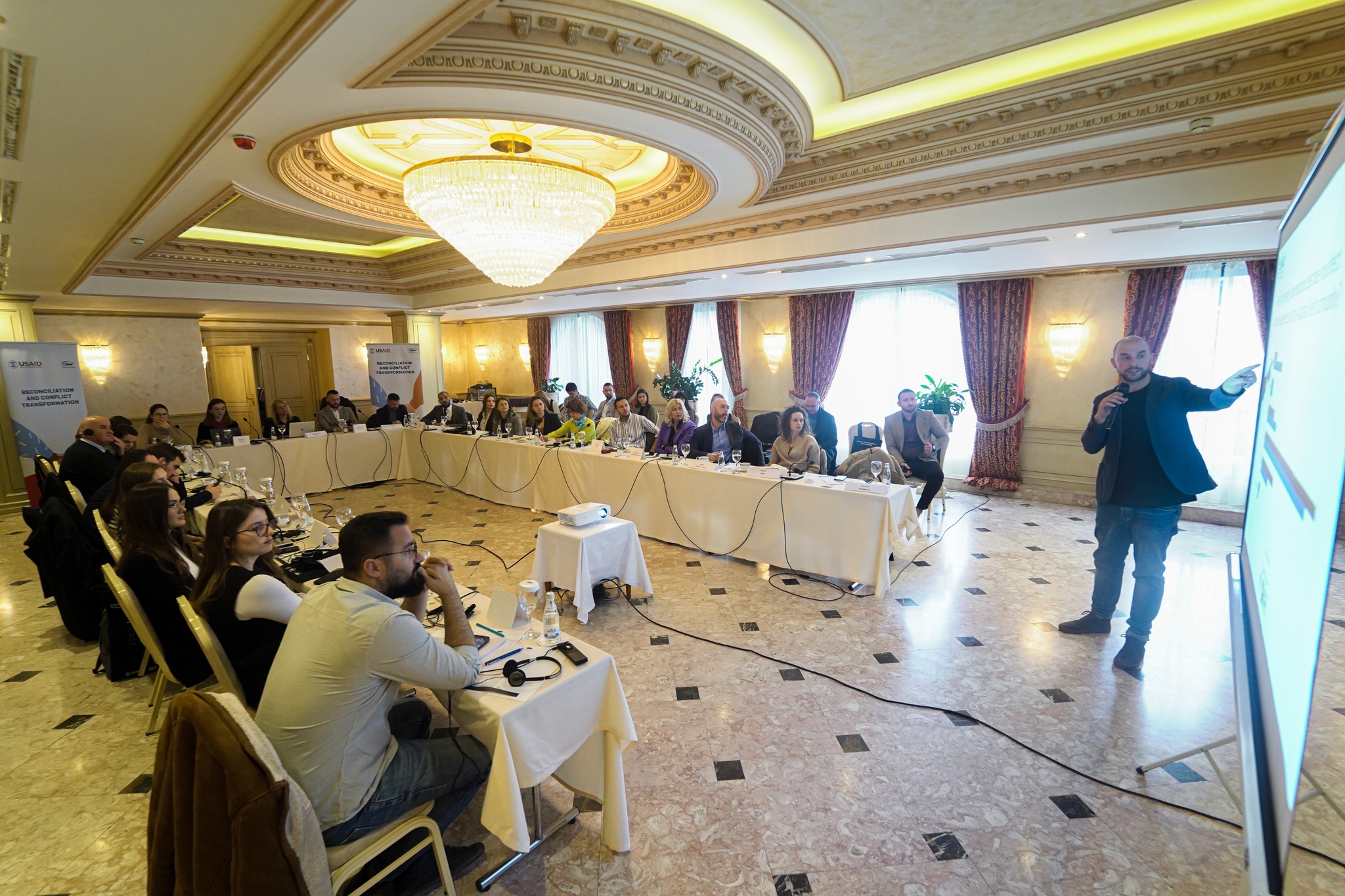
RCT Annual Advocacy Conference

RCT Annual Advocacy Conference
As we know, the process of building relations between different communities in Kosovo is not easy and requires a lot of effort. A considerable amount of work has been done in this direction, for more than 2 decades now, but there is still a lot to do. In different periods, different approaches and general efforts are required, in order to see results. The problems change depending on the events that happen, and it is important to identify them first, before we can talk about concrete steps.

In furthering efforts to identify optimal solutions for present challenges, RCT Activity supported by the American people through USAID Kosovo, inaugurated its Annual Advocacy Conference. The main goal was to produce a policy document, oriented at legislative solutions pertaining to the current problems related to community cohesion. The conference brought together government representatives, international organizations, civil society actors, journalists, and other parties to produce a policy memorandum that will be advocated on. Attendees provided numerous recommendations upon the necessary work of different stakeholders such as local and central government, security institutions, media, international actors, CSOs and other actors involved.
This conference had three main sessions.
In the first session, the findings from research conducted by the Think and Do Tank were presented by one of the original researchers, Flamur Abazi. This presentation focused on the key findings of the research, points that had the potential to open a discussion, while also reflecting the perceptions of the Kosovo citizens of all communities living in the Mitrovica region.

The second session was conducted as a panel discussion consisting of one representative from a public institution, two CSO representatives from the Kosovo Albanian and Serbian communities and one representative from the international community with a professional background in conflict resolution. Prompted by questions from the conference attendees, the panelists referred to the findings of the research and drew from their professional experiences to give their opinions on the current political and security situation in Northern Kosovo. Attendees provided numerous recommendations upon the necessary work of different stakeholders such as local and central government, security institutions, media, international actors, CSOs and other actors involved.
Additionally, they analyzed the current state of interethnic relations in the Mitrovica region. This session served as a precursor to the final session, which was outcome oriented.

The concluding segment of the conference fulfilled its primary objective: producing a policy document aimed at legislative solutions related to the problems identified in the research. Following the research presentations from the ‘Think and Do Tank,’ along with participant analysis and discussions, a document was compiled. This document aims to address the primary needs in regulating relations between communities.
Shikoni listën e rekomandimeve KETU.
After the conclusion of the conference, RCT Activity is ready to embark on its next crucial phase: advocating and lobbying for the implementation of the recommendations presented to the relevant institutions. These steps signify a commitment to translating discussions into tangible actions, in order to sustain our momentum towards fostering positive change within the community.
